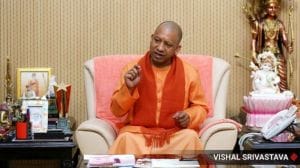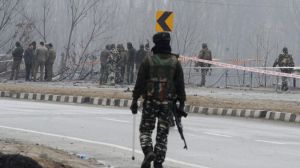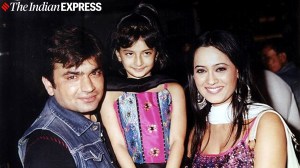For these kids, internship means getting to know home
To the 17 interns at the Federation of Indian Chambers of Commerce and Industry (FICCI), everything in India looks familar yet strange. The ...

To the 17 interns at the Federation of Indian Chambers of Commerce and Industry (FICCI), everything in India looks familar yet strange. The people on the streets look like them, the food tastes like back home though spicier but the traffic and pollution are a bit disorienting.
The interns, youngsters of Indian origin from all over the world, are here for about two weeks, helping in organising the second Pravasi Bharatiya Divas that begins on January 9. And the aim of the organisers—FICCI and the Ministry of External Affairs: reaching out to the young of the Indian diaspora, most of them third- or fourth-generation of Indian migrants who have never visited India before.
The interns’ reasons for coming to India range from the emotional to the practical. For some it’s a chance to finally see the imagined homeland while for others it’s a good opportunity to network. But all agree that their link to their country of orgin should be preserved. Especially in these globalised times when investing in India doesn’t seem a bad thing at all.
It’s Rashay Magan’s first trip to India. A third-generation Indian from Cape Town, he had heard all sorts of stories about India—some terrific, some cautionary. ‘‘Well, there is traffic and pollution but that doesn’t make too much of a difference. I know whatever I expect from India, it will give me that.’’ A financial consultant, Magan now wants to co-produce films with India. ‘‘There are historical links between South Africa and India. While lots of Hindi films are shot in Africa there hasn’t been a co-production. And I will be meeting people in Mumbai for this,’’ says Magan who doesn’t watch too much of Bollywood though.Films are a way of staying in touch with India for 21-year-old Rushil Patel from Zambia. ‘‘Zambia has a population of 10 million of which Indians are just 6,000-7,000. They are spread all over the country but everyone knows about each other. As a minority we have to stay together and help each other,’’ says Patel, a member of Zambia’s Hindu Association. Patel’s grandfather founded the Radha Krishna temple in Lusaka and some of his religious fervour has passed on to him. ‘‘I read the Hanuman chalisa everyday and I mainly believe in Ganpati and Hanuman,’’ says Patel who is studying to be a chartered accountant.
At home they observe the Gujarati rules: all vegetarian and no alcohol. A Gujarati at home and Zambian at work, multiple identities is something Patel has gradually become comfortable with. ‘‘Sometimes I feel I should give up my parents’ way but then why try and be something you aren’t?’’
But Ashvinee Fakoo, 22, from Mauritius is part of the Greater Indian Family that cries together and stays together over domestic turbulences in Hindi television serials. Janice Aliar who is stuying Law in The Netherlands and enjoys Indian classical dance, is another faithful. ‘‘We watch all of them—Kkusum, Kyunki Saas Bhi….’’
And while Shakti Chemitiganti from California shares none of this passion and can be mistaken for a tennis playing all-American who is actively involved in fundraising for the Democrats, he too keeps alive the image of India in the Telugu that he occasionally speaks and in the Indian music that he enjoys.
Indian music also lives on in a corner of Israel. Lilach Chordekar’s father left Maharashtra for Israel in 1959. ‘‘He did not migrate,’’ says Chordekar pointedly. ‘‘We call it homecoming. He left his home for his homeland.’’
Today the daughter has made the journey in reverse. ‘‘I am Jewish, an Israeli and Indian,’’ she says. For her, India has lived on in the Marathi they speak at home, in the songs they sing and in the mehndi ceremony they hold at weddings.
Apart from interacting with Indians, the best bit for the interns has been meeting others like them. Shakti Chemitiganti sums up: ‘‘After meeting so many people, I feel kind of assured that the way it has been difficult for me growing up with different identiies, it’s been the same for others. I feel connected.’’
Photos





- 01
- 02
- 03
- 04
- 05


























